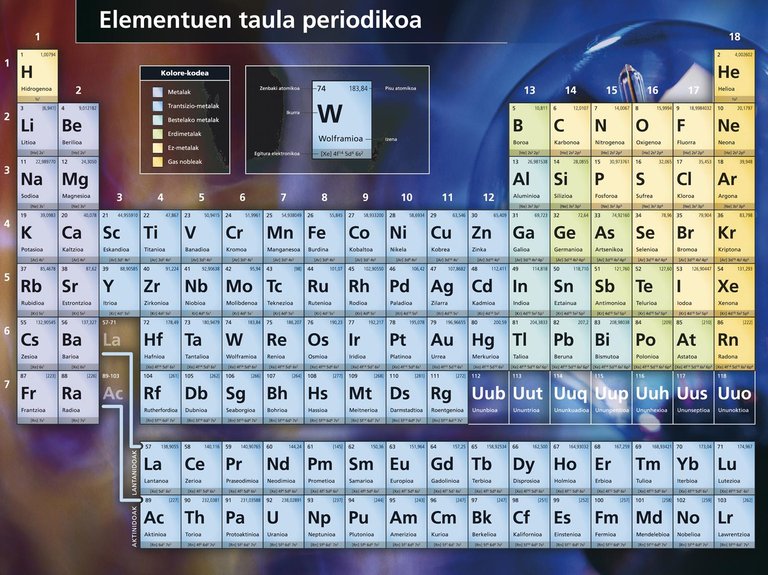Scientific Culture 1. Reflection on the festival

Between January 7 and March 31, #Scholarly Culture 1. We have done a virtual festival on the internet. The project has been opened to anyone interested in participating, in order to collect different types of contributions on areas of knowledge that can be considered as scientific cultures, taking advantage of the possibilities offered by the network and new technologies. All this had a main objective: to have fun as in any festival, in this case spreading, sharing and socializing the scientific culture, Basque being the language of communication.
However, festivals serve for more than just fun. They serve to strengthen relationships between participants. In this sense, the objectives of the festival were, among others, to create a network of agents that work in Basque for scientific culture on the Internet, to strengthen science and scientific culture in education and in society as a whole, to help overcome the artificial barrier between "sciences" and "letters", to promote teamwork, etc.
Therefore, the invitation to participate in the Festival was transferred to all those people who work in science (understood broadly): education, research, scientific communication, etc. (museums, libraries, catalogers, etc.) and, as mentioned above, anyone else interested in participating in this virtual festival. Once the festival is over, the time has come to see if the objectives have been met. All the numbers and statistics contributed by the festival were disseminated by the host blog Zientzia Kaiera. These statistics serve for many reflections and, not to extend too much, I will focus on the ones that are most significant to me.
In total, 120 contributions have been shared by more than a hundred participants through 31 blogs/websites (some created specifically for the festival). The topics covered in these contributions were experimental and technological sciences, health sciences, human and social sciences. Participants were from all walks of life. We have had the participation of students and teachers of all educational levels, except primary. Researchers from universities, research centres and technology centres have also participated. Members of different scientific communication groups and entities participated. Also participated libraries, museums, retirees, unemployed, etc. The contributions made have also been diverse. Texts, infographics, videos, podcasts have been created and shared at the Festival.
In addition, on social networks the environment has been unique. The contributions of the festival have been disseminated through Twitter and Facebook, which has prompted the dissemination of the works shared during the festival. It is very significant that 1,846 copies have been spread on Twitter without taking into account them. Thanks to these tweets and colloquiums, the hashtag #KZJaia has been present in the main trends of the Basques for 70 days and the automatic digital news Sustatu has captured 44 contributions. Thanks to this dissemination, the festival has had, in one way or another, quite a lot more followers than the author of the contributions. Proof of this is the number of visits to the host blog: Nearly 30 publications related to the festival have received nearly 6,000 visits. Therefore, we can say that the initial forecasts have been exceeded and that the objectives have been met.
Despite the success of the initiative, we cannot forget that this number of participants represents a very small percentage of the total number of people working in science. In any case, since they have been participants in all areas and areas of knowledge, I think we have laid a solid foundation for future networking initiatives. In addition, I find very significant the participation of students and teachers of different educational levels. Therefore, supporting the formal dynamic of the class, the Festival can serve to awaken or expand the passion for youth science.
In addition, according to the latest sociological surveys, in terms of information sources, youth use the Internet as a first option. Therefore, among the contents that can be found on the Internet in Basque, science must have a place if we want to spread scientific culture among youth. Also, I think seeing that students themselves can be broadcasters of information on the Internet can be of great value to them. This topic has shown that the role of teachers is fundamental to guide students in tools and resources, as well as in the care of contents. The experiences carried out at the Festival, with the i(ra)casles of Secondary and University, have been very positive and can be an example of the future for other teachers/students.
The festival has brought together researchers and communicators from different fields. As a researcher, I think we should make a greater effort to socialize the results of our research, without leaving all this work in the hands of communicators. The festival has also served to better meet the members of both areas and to strengthen the collaboration necessary for the future.
Finally, we must not forget that #Scholarly Culture 1. If this festival has been a success, it has been thanks to all those who have participated in one way or another thanks to the collaboration. Collaboration between people working around science is very important for the socialization of scientific culture (especially among young people through education). The Internet and social networks allow and we must take advantage of such joint initiatives. Scientific Culture 1. The festival was the first virtual festival we did. Let it not be the last.
Buletina
Bidali zure helbide elektronikoa eta jaso asteroko buletina zure sarrera-ontzian











